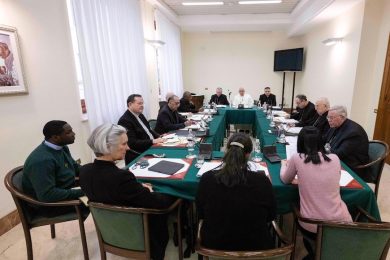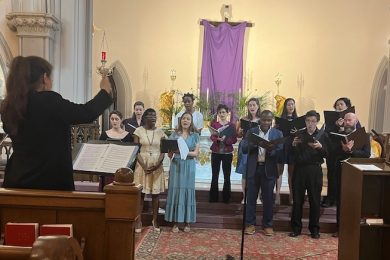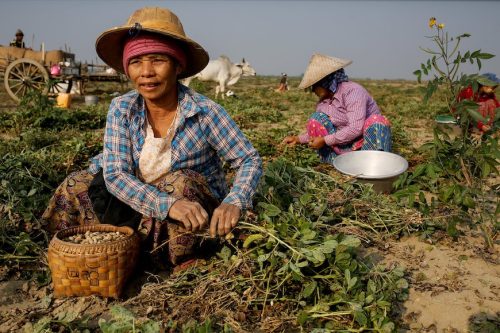VATICAN CITY (CNS) — Promoting women in leadership and decision-making is essential for building a more just society and is a key priority for both Caritas Internationalis and UNESCO, the two groups said.
“Poverty, violence and lack of access to education and basic services create a culture that excludes women in society and perpetuates cultural, political and institutional barriers,” they said in press materials for the conference held Oct. 27-28 at UNESCO headquarters in Paris.
“Our work shows that women’s empowerment, education and participation in leadership and decision making at all levels make a concrete contribution to removing these barriers and facilitate a culture of encounter in which women’s experiences and expertise are valued and heard,” they said.
In partnership with the Permanent Observer Mission of the Holy See to UNESCO and under the patronage of UNESCO, Caritas Internationalis organized the conference, “The Full Face of Humanity: Women in Leadership for a Just Society.”
“Caritas, the Holy See and UNESCO recognize that achieving the flourishing of the ‘full face of humanity’ requires collaboration, commitment and action from men and women at all levels, in all countries,” the joint press release said.

“The building blocks of a more just society are therefore based on the foundation of men and women working together to sensitize communities, facilitate the empowerment of women and remove barriers which women face in leadership and participation, with the goal of achieving equality between women and men,” it said.
Delivering the keynote address Oct. 27, Cardinal Pietro Parolin, Vatican secretary of state, spoke about the importance of “inclusive education,” which welcomes others “despite our differences” and promotes a “culture of dialogue” and fraternity.
The goal of inclusive education, he said through an interpreter, should be to ensure “that every man and woman can have their dignity (by) investing in their ability to become equal protagonists of the common good.”
However, the cardinal warned that inclusion must not fall prey to “reductive and distorted interpretations of the human person which sometimes go so far as to hold that religion is an obstacle to the absolute freedom of self-determination of the person and of women in particular.”
“This radical way of thinking, where the attempt to affirm predetermined and controversial ideas, instead of striving for inclusion and respect for different cultural sensitivities, forcefully imposes a uniform and inflexible position, ultimately intolerant of any other anthropological paradigm, including that proposed in Catholic schools,” he said through the interpreter.
“For the Holy See,” he said, “it is disturbing that certain ideological (tendencies), under the pretext of responding to certain sometimes understandable aspirations, actually end up demeaning the very understanding of women and their rights.”
There can be no “abstract and simplified” way to determine the best ways to “ensure women’s genuine emancipation,” he said.
Inclusion is a method that requires patience and determination “to generate educational processes that are not merely standardized or top-down, or limited to their utility or results,” he said. The processes “must be willing to interconnect all of the components of society toward the creative and responsible paths of human maturation which are appropriate to the dignity of women.”
The event’s joint press release said the goals of the conference included: showing why Caritas and others “are taking a values- and rights-based approach to promoting women’s leadership and participation in decision-making”; examining the challenges and barriers related to poverty, violence and exclusion; proposing solutions related to education and empowerment; recognizing the suffering women experience as well as their “resilience and ability to overcome in order to serve, accompany and defend others in similar situations”; and to share best practices and to provide concrete steps “toward achieving equality between women and men and empowering all women and girls.”






















